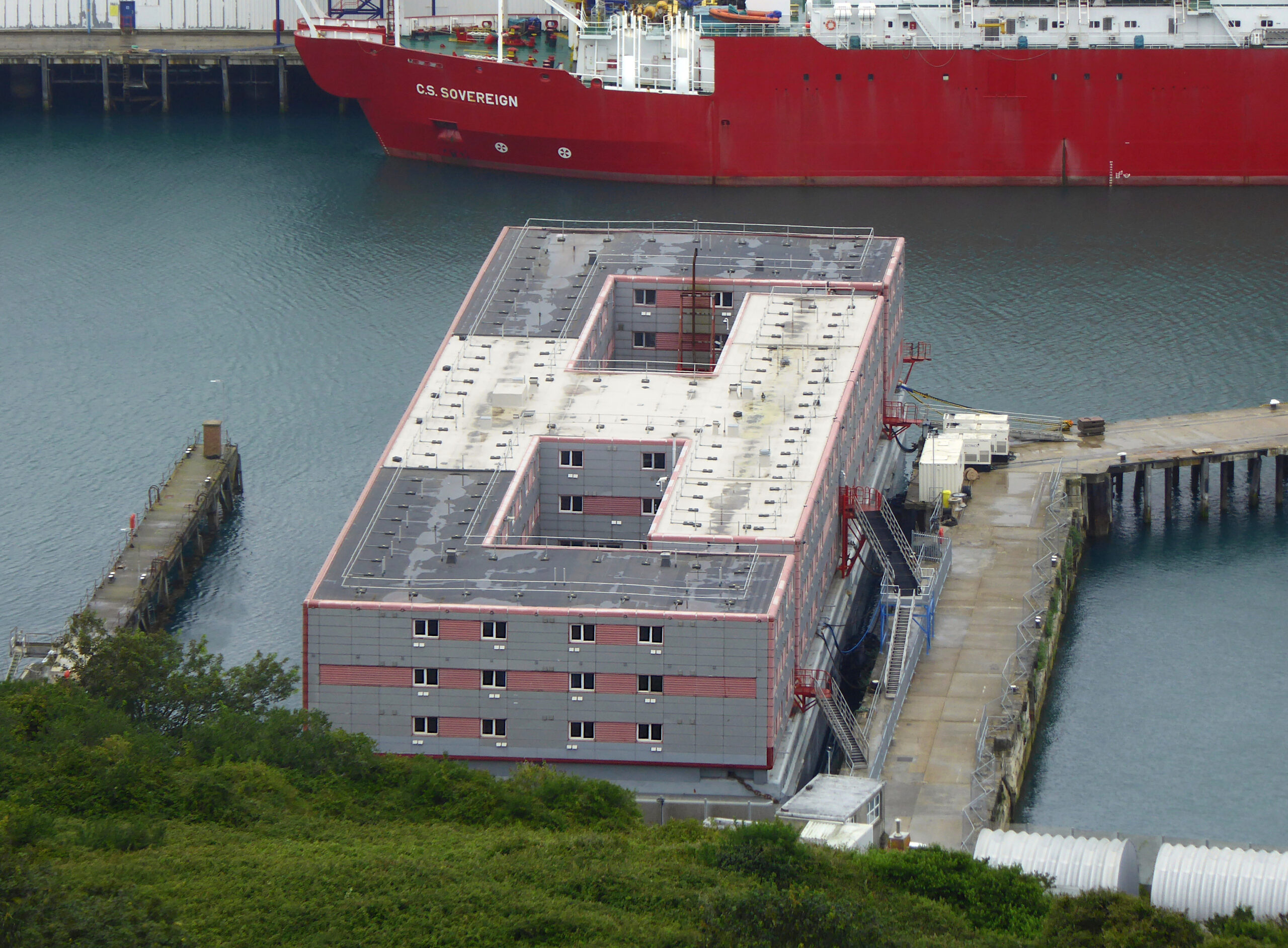What was it like for the people seeking asylum who were put on the Bibby Stockholm barge, as some started to fall ill?
The 39 people who were on board speak out, in this letter, about their frightening ordeal—and why it isn’t over yet.
[Warning: this content mentions attempted suicide or suicidal thoughts.]
We [are] a group of 39 asylum seekers from different countries…
We are writing to explain that we were running from persecution, imprisonment and harsh tortures, with hearts full of fears and hope from the countries we were born in, to find safety and freedom in your country and our new refuge.
We have been forced to leave our homes.
We used to live under harsh tortures and danger of persecution in our countries. We have been forced to leave our homes, our jobs and our families, and some of us haven’t seen our families for months.
This abandonment and separation from our family has been bitter and painful, and has been accompanied day by day with anxiety and nervous stresses and only a combination of hope and fear remains within us.
We arrived in Britain with the hope of a better future and, at the very least, some mental peace… For about six months, or for some individuals, a year, we have experienced unemployment without income, the ability to study, or basic rights. We were informed that we would be moved to the Barge “Bibby Stockholm”… an unsafe, frightening, and isolated place.
We felt that the ship was largely a place for troublemakers and lawbreakers—but as individuals who want to adhere to laws and civic values, we accepted this decision.
This decision was very difficult, and we accepted it courageously.
When we entered the ship, it felt as if we were entering a world full of new anxieties and fears.
The appointed day arrived, and under the heavy media pressure, we were transferred to our place of exile by Home Office buses. A confined and floating space on the water with strict security regulations. None of us were criminals or had committed any wrongdoings, and we had no access to the city and normal life. Small rooms and a terrifying residence.
When we entered the ship, it felt as if we were entering a world full of new anxieties and fears. Fear of facing the questions of journalists prevented us from leaving the ship, and no one knew what awaited us in terms of our physical and mental health.
During the few days of staying on the ship, we experienced very difficult conditions.
 The Bibby Stockholm Barge in 2023.
The Bibby Stockholm Barge in 2023.
We were informed of concerning incidents: some people on board had fallen ill. Also, in a tragic incident, one of the asylum seekers attempted suicide, but we acted promptly and prevented this unfortunate event.
On the morning of 11 August, news spread about the presence of an epidemic on the ship. Some of us displayed symptoms of Legionnaires’ disease, but no one responded to us, the Home Office did not contact us, and everyone was in shock and fear. In the afternoon of that day, as the last individuals to learn about this problem, we were informed that we would temporarily be moved to a new location.
The sense of isolation and loneliness has taken over us…
Currently, we are staying in an old and abandoned hotel. The sense of isolation and loneliness has taken over us, and psychological and emotional pressures have increased. We even lack the desire to live and perform any tasks.
We are individuals who are tired of the challenges that have arisen and no longer have the strength to face them. Even the presence in religious places, which were the only source of solace, warmth, and acquaintance with kind and sympathetic individuals for us, has become confusing due to these numerous relocations.
Now, we seek refuge in you and hope to walk alongside you on this path with your support and unity. We believe that with our joint effort, we can achieve the peaceful and secure life that we aspire to.
Respectfully and hopefully,
The 39 refugees who were placed on the Bibby Stockholm.
At the Refugee Council, we believe that hostile policies and unsafe accommodation—like the Bibby Stockholm—are damaging and inhumane.
Swift and fair decision making allows refugees to move on with their lives, recover from their trauma, and contribute to our society and economy.
Please join us in calling for a fair and humane asylum system. ■

